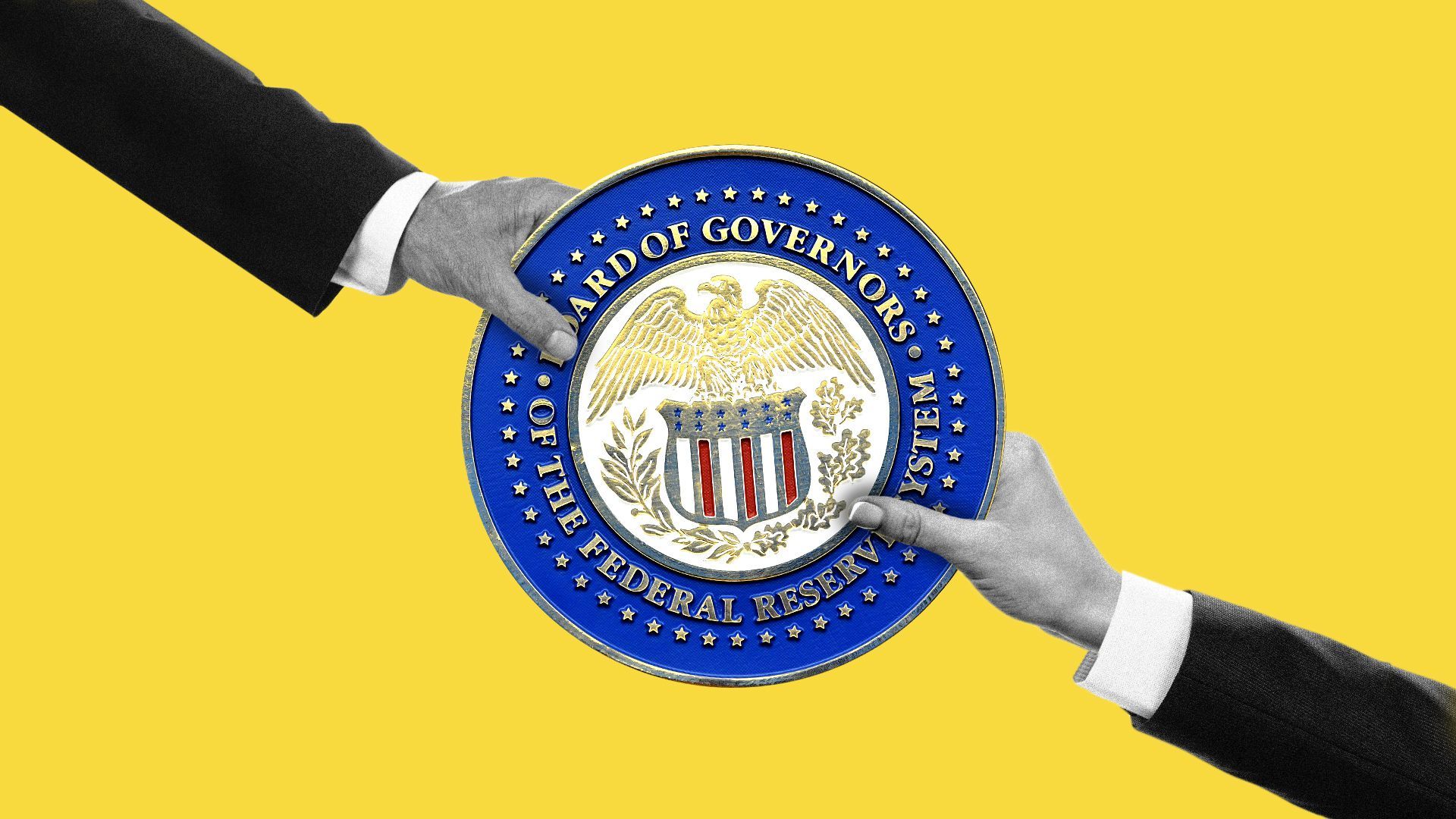Judy Shelton vs. Fed independence
Add Axios as your preferred source to
see more of our stories on Google.

Illustration: Aïda Amer/Axios
President Trump hasn't given up on his dream of politicizing the Fed. After failing to get Herman Cain and Stephen Moore onto the Fed's board of governors, his latest candidate is one of his former campaign advisers, Judy Shelton, who testified in front of the Senate Banking Committee today.
Why it matters: Shelton is no more qualified to sit on the Fed board than Cain or Moore. But she's already further along in the process than either of them ever managed.
- Her nomination is now being treated as a loyalty test for Senate Republicans, few of whom have any desire to provoke Trump's anger.
Context: The Supreme Court and much of the federal judiciary have been highly politicized for decades, while the Department of Justice is currently at the center of a politicization firestorm.
- The Federal Reserve, for all that it has been on the receiving end of many irate Trump tweets, is the most important institution that has managed — so far — to stay above the political fray.
For the record: As Catherine Rampell has comprehensively documented in her Washington Post column, Shelton's views on monetary policy are nakedly partisan. Just like Moore, she advocated for higher rates when a Democrat was in the White House, only to then support lower rates under Trump. If confirmed, she has made it clear that she will vote in accordance with Trump's wishes.
- Economists assume that if Shelton is confirmed, she will give Trump, and his advisers, details of what happens in Fed meetings.
- Shelton has advocated for much less central bank independence. She wrote in September that the Fed should "pursue a more coordinated relationship with both Congress and the president."
- Shelton made her career as a goldbug who wanted to replace the Fed with a "Universal Gold Reserve Bank." For good measure, she also advocated getting rid of deposit insurance.
What's next: Senators managed to find non-political reasons to oppose the nominations of Cain and Moore, ducking the issue of whether the candidates' monetary-policy views were acceptable for the Fed. But Shelton has already received Senate confirmation once, when she was appointed the U.S. envoy to the European Bank for Reconstruction and Development.
- Even though Shelton's performance in the EBRD job was underwhelming — after failing to attend nearly half the bank's meetings, she resigned when she was nominated to the Fed position — any opposition to her is going to have to be based on her policy views rather than the kind of personal-character issues that bedeviled Cain and Moore.
What they're saying: GOP Sen. Mike Rounds told Fed chair Jay Powell this week that "on both sides of the aisle you’ll find strong support for an independent Fed."
- He then turned around and told the WSJ's Nick Timiraos that he would support Shelton's nomination, on the grounds that it's good to have a diversity of opinions on the Fed board.
Between the lines: If Shelton is confirmed, and if Trump is re-elected, she would immediately become the front-runner to be the next Fed chair. (There's no way that Trump will re-nominate Powell.) At that point, Trump would effectively control the Fed chair, and the era of central bank independence would be over.
The bottom line: Diane Swonk, chief economist at Grant Thornton, says of the prospect of Shelton joining the Fed board: "It’s mind-boggling. It’s disturbing. It’s dangerous." It's also entirely possible. The only thing that can prevent it now is a show of spine from at least four Republican senators.
Go deeper: We're closer than ever to a political Fed
